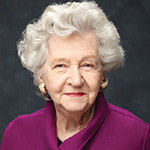October 15, 2019 —By Frances Kolarek —
 Happiness is not getting what you want, but wanting what you have.
Happiness is not getting what you want, but wanting what you have.
“It seems ridiculous to say that the happiest year of my life took place when I was 68, but so it was.” I hope our skeptical Boomers, teetering on the brink of 65, can take a measure of hope from this comment from Lord Kenneth Clark, who brought us the television documentary Civilization about the history of art.
I take delight in “The Joy of Old Age. (No Kidding.),” an essay by Oliver Sacks printed in The New York Times on his 80th birthday. Dr. Sacks is the author of many books, and a professor of Neurology at New York University medical school. He writes that while “one’s reactions are a little slower, names more frequently elude one, and one’s energies must be husbanded,” one may, nevertheless “often feel full of energy and life and not at all ‘old.’” Amen,
And he anticipates having more years “to love and work, the two most important things, Freud insisted, in life.” Having this affirmation from a real, honest-to-goodness member of the fraternity tells me we happy oldsters need to raise our voices.
Writers about age, none old themselves, tend to emphasize its miseries and wring their hands. But they have never actually entered the tent. They stick their noses under the edge and shudder.
A Gallup poll, carried out in 2008, came up with the astonishing result that as people age they get happier. Over 340,000 people all over the country, ages 18 to 85, were polled and answered questions about finances, health and a lot of other matters. The poll results were published online in the Proceedings of the National Academy of Sciences.
A British professor of psychology, author of several studies on human happiness, remarked, “It’s encouraging that we can expect to be happier in our early 80s than we were in our 20s.” Yet the cause of this amazing state of affairs remains elusive.
As one writer commented: “Look at the bright side: you are getting old.” Are you listening Boomers?